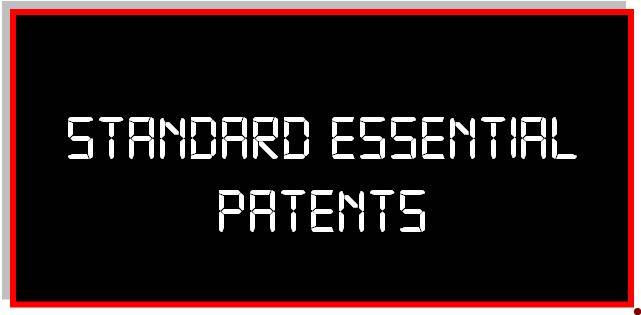This post is in continuation to Standard Essential Patents : Fair? Reasonable? Non-Discriminatory? (I). In this post we will discuss the state of FRAND based litigation in other countries and look at how the Courts moved to interpret the law.
The first of the cases to be discussed are as follows:
- Apple Inc. v. Motorola, Inc. and Motorola Mobility, Inc
Apple filed two complaints in the Western District of Wisconsin for patent infringement against Motorola, Inc. and Motorola Mobility, Inc., seeking monetary damages and an injunction. Apple in addition to the above filed a complaint with the International Trade Commission (ITC) for patent infringement against Motorola, Inc. and Motorola Mobility, Inc. with respect to mobile devices offered in the U.S. It sought a bar on imports of devices as well as an injunction prohibiting Motorola from engaging in further activities related to the same mobile devices.
In retaliation, Motorola filed a counterclaim against Apple alleging Apple infringed twelve Motorola patents which Motorola originally asserted in the Northern District of Illinois. The Western District of Wisconsin transferred the actions to the Northern District of Illinois and the trial was scheduled for June, 2012 regarding Apple patents and three Motorola Mobility patents.
While these matters were under discussion in the US, Motorola filed patent infringement complaint in Mannheim, Germany, alleging that Apple had infringed three of Motorola Mobility’s patents, two of which were standards-essential patents. The courts in Germany found Apple to have infringed two of the three Motorola Mobility patents, one standards-essential and one non-essential, and granted injunctions in this respect. Enforcement of this injunction in Germany resulted in temporary ban on Apple’s online sales of iPhones and iPads to consumers in Germany. Apple was consequently forced to enter into a Settlement Agreement with Motorola whereby it had to give up its invalidity and non-infringement claims.
In reply to this Apple filed a counterclaim alleging breach of contract, based on Motorola‘s pursuit of injunctive relief, in the light of its FRAND licensing commitments to the IEEE and ETSI in the Western District of Wisconsin.
The court in the Western District of Wisconsin examining FRAND commitments, concluded that “there is no language in either the ETSI or IEEE contracts suggesting that Motorola and the Standards Setting Organizations intended or agreed to prohibit Motorola from seeking injunctive relief.” Keeping in mind the absence of any question of injunctive relief in both the policies it concluded that any contract purportedly depriving a patent owner of that right should clearly do so. The contracts at issue were not clear on that point. Therefore, it was concluded that “Motorola did not breach its contracts simply by requesting an injunction and exclusionary order in its patent infringement actions”. Apple filed a petition to review the ALJ’s findings but the ALJ ultimately ruled for Motorola and against Apple in mid-March 2012
Conclusion
With the growth of innovation, Patent rights are taking new shape to meet various challenges and at the same time striving to preserve the historical purpose of the patent system i.e., to encourage the development of new inventions. Whilst bridging the gap, issues like abuse of dominance and monopoly, which are detrimental to competition and public good have to be addressed. Although the matter is in the developmental stage, the step taken by judiciary/ quasi-judiciary in this respect is noteworthy. SEP holders being awarded the status for a cause should not abuse their market power by “holding up”.
Injunctive relief used for immediate protection against infringement in SEPs is seen as a safe harbour provision and have resulted in anti-competitive situations. Therefore, caution must be exercised while granting one. Subjecting the infringer of SEPs to FRAND terms and making this obligation mandatory should be resorted to. Upon the infringers unwillingness to accept this proposal, injunction may be granted.
Nevertheless, it is pertinent to state that, Courts have not always been in favour of granting injunction in cases relating to FRAND in SEPs. Court in Microsoft Corp. v. Motorola Inc., 696 F.3d 872 (9th Cir. 2012), ruled that Motorola ‘s commitments to the IEEE and ITU created enforceable contracts between Motorola and the SSOs ―to license its essential patents on RAND terms, and that Microsoft is a third-party beneficiary of these contracts. The Court therefore dismissed Motorola‘s claim for an injunction. The Court came to this conclusion because Motorola had an obligation to license the SEPs on FRAND terms and as the Court had taken upon itself to facilitate this license by determining a royalty rate, Motorola was unable to show either irreparable harm or inadequacy of remedies.
The Court in Samsung v. Apple has clearly stated that seeking an injunction during negotiation of the FRAND license must be considered as an abuse of law or a breach of pre-contractual good faith. The Court further opined that injunction would put Apple under considerable pressure in the negotiation of the terms and conditions of the FRAND license. Therefore, if a third party has made an effort and showed its willingness to obtain SEP license on FRAND terms the same has to be respected. The Court held that filing of the injunction claim during the process of such negotiation could also be considered as misuse of a market-dominant position within the meaning of competition law.
The development discussed here are still nascent and certain concepts like FRAND royalties for SEPs, determination and fixation of FRAND royalty in SEPs, standard terms in the FRAND agreement, the most ligated areas are still murky and need evaluation. Though courts have been successful to an extent in determining cases for grant of injunction, its after effect are still unconsidered. FRAND in SEPs has a long way to go before its full potentials are tested.
Authored by Bhuvana Babu.



